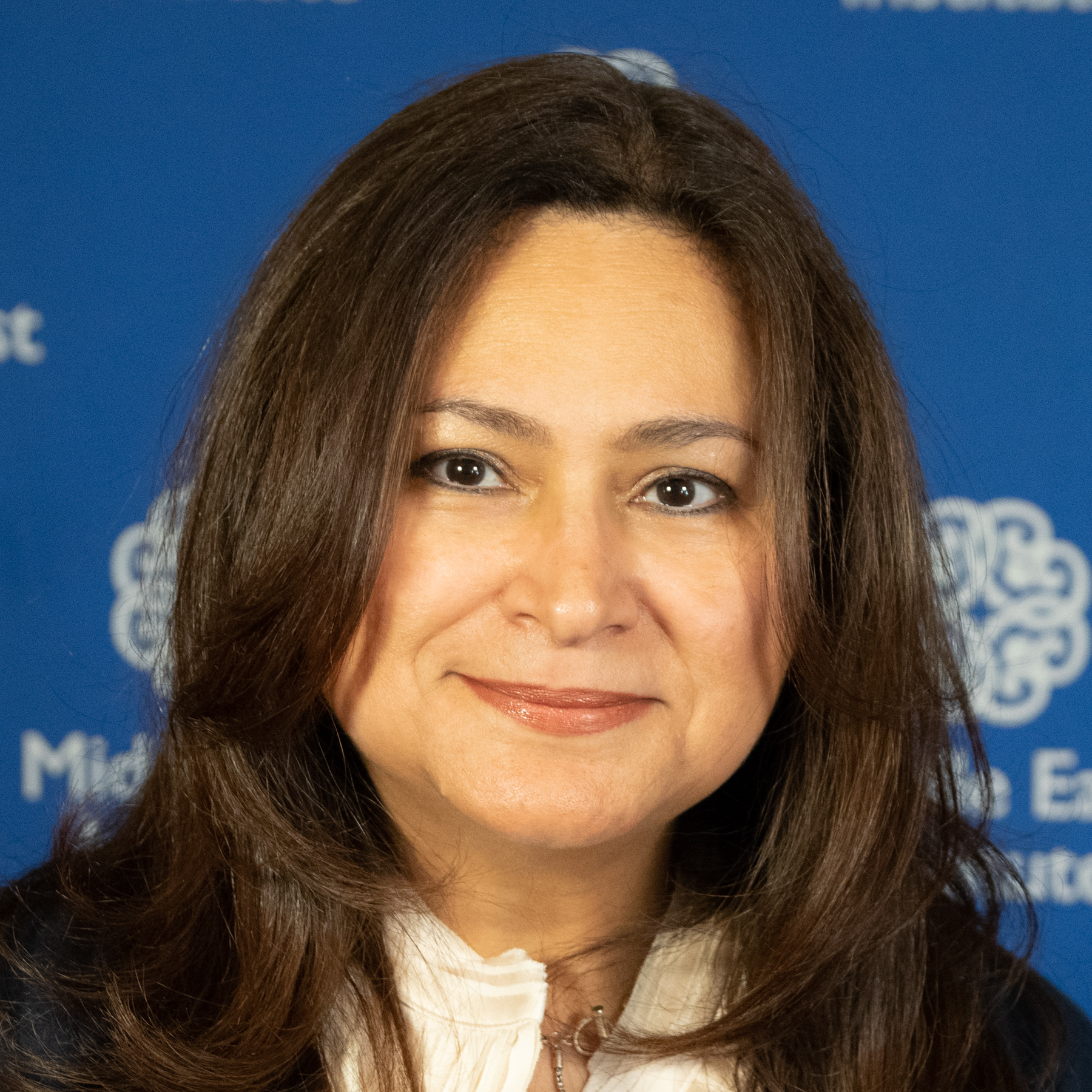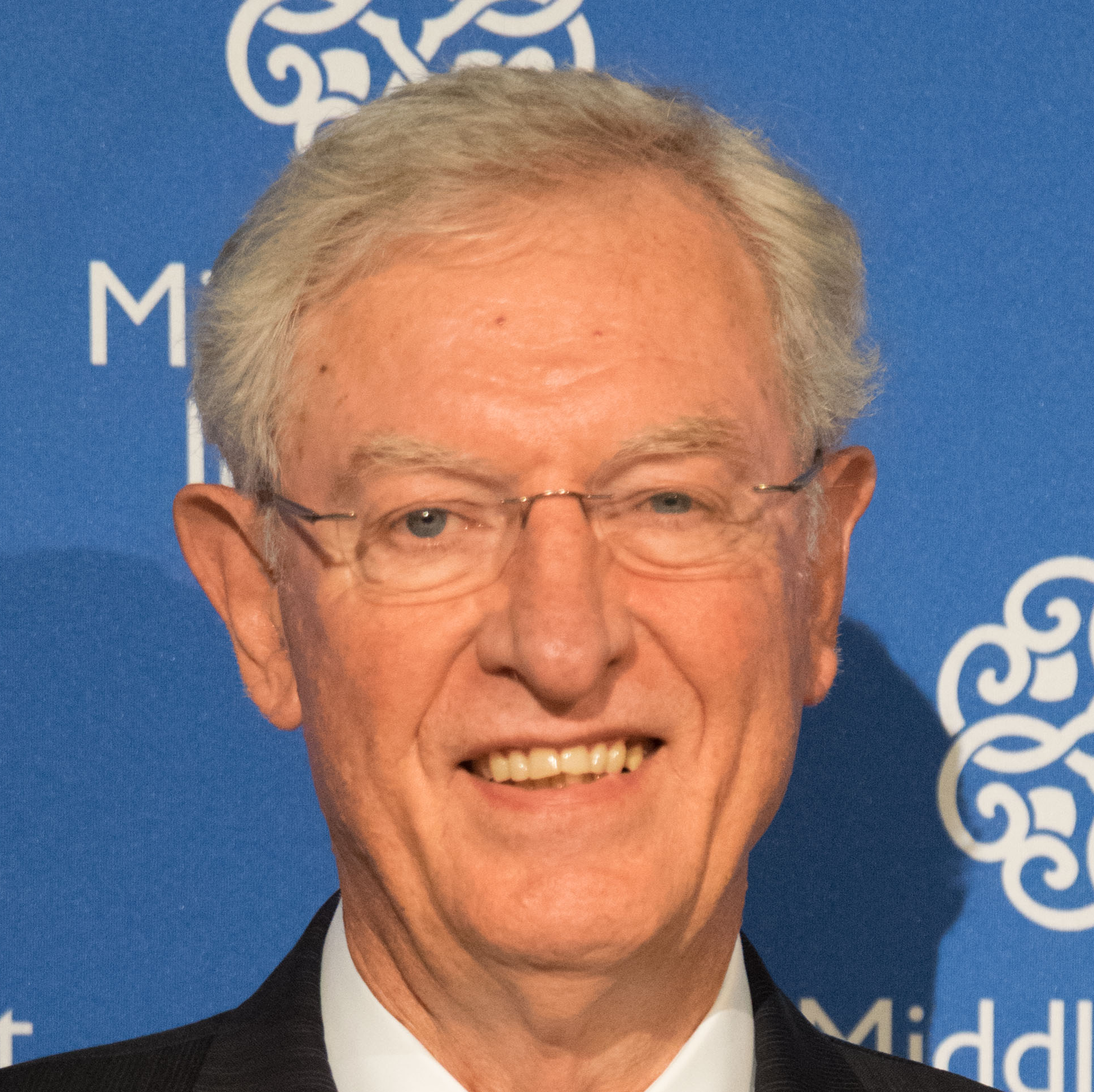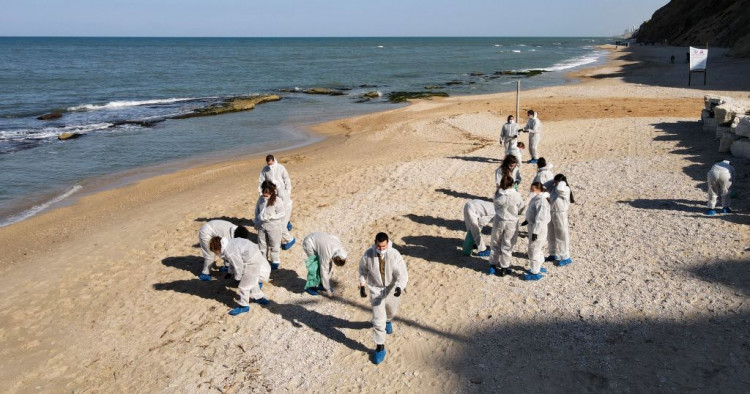Contents:
- Israel and Iran take their clandestine war to the sea
- Reports of an Egyptian-Turkish rapprochement have been greatly exaggerated
- Clubhouse brings familiar hopes and fears to the Middle East
- Afghan politicians in a looming faceoff with Ghani over negotiations
- Turkey’s economic reform plan
- Yemen: US announces aid restoration to Houthi-controlled areas
Israel and Iran take their clandestine war to the sea
Eran Etzion
Non-Resident Scholar

Israel and Iran have been engaged in a shadow war for some two decades, with varying degrees of escalation. 2021 brought with it a strategic shift in Washington, with the new administration’s clear and absolute strategy to rejoin the Joint Comprehensive Plan of Action and avoid a nuclear crisis in the Middle East. Israel, dominated by Benjamin Netanyahu’s hard line on Iran for the last 12 years, views this with a much-troubled eye. Knowing full well that the Biden team sees it as a potential Iran-deal spoiler, rather than a strategic ally, Netanyahu is employing his old strategy: become a nuisance, so they won’t be able to ignore you. This approach relies heavily on Israel’s intelligence and military capabilities across the Middle East. It started with the strategic assassination of the head of Iran’s nuclear effort, Mohsen Fakhrizadeh, on Nov. 27, 2020, and continued with multiple attacks on Iranian-related targets in Syria and Lebanon, later expanding to the Iraq-Syria border. These were all calculated moves, designed to force Joe Biden’s hand.
The maritime arena has recently been added to the mix, with reported Israeli attacks on Iranian ships smuggling oil to Syria. There was also one incident of an Israeli-owned ship attacked in the Persian Gulf, allegedly by Iran or one of its proxies. On Feb. 17, 160 km of Israel’s shores were heavily contaminated with tar, from an initially unknown source. A gag order was hastily issued, causing growing suspicion about the identity of the ship and the nature of the incident. An American blogger published a report claiming it was Israel’s Navy SEALs unit that inadvertently caused the environmental disaster, sabotaging a ship carrying Iranian oil. It followed a report by The Wall Street Journal that shied away from connecting the dots but provided extensive background. The Iran-Israel shadow war is now raging across all three domains: air, land, and sea. But it will ultimately be decided in the domain of diplomacy and politics, and mainly by U.S. policy choices.
Israel will hold general elections in eight days. Iran will elect a new president on June 18. America has already made its choice. History is watching.
Reports of an Egyptian-Turkish rapprochement have been greatly exaggerated
Mirette F. Mabrouk
Senior Fellow, Director of the Egypt program

Recent remarks by Turkish President Recep Tayyip Erdoğan about a possible upgrade in ties with Egypt have sparked yet another furious round of conjecture about a possible Egypt-Turkey rapprochement. President Erdoğan noted that cooperation “might not be at the highest level but it is just a notch under. And of course we wish to continue this process with Egypt in a much stronger manner.”
If true, this would be quite a significant development. Turkey, a NATO member, is a power to be reckoned with and it has wielded that power with increasing assertiveness, while Egypt remains a major regional player. However, there have been many similar overtures on the Turkish part before (although rarely by the president) and they have all come to nothing. The latest round of remarks was met by a polite Egyptian statement that formal ties between Egypt and Turkey already existed, if at the level of chargé d’affaires, and any upgrade would require an adherence to the legal and diplomatic framework and a respect for national sovereignty and regional security. It was a flowery way of alluding to two of the sharpest thorns currently in the relationship.
Relations between the two countries have been frosty since 2013, when former Egyptian President Mohamed Morsi was overthrown in a military coup after mass demonstrations against his rule (and, by extension, that of the Muslim Brotherhood). Erdoğan publicly made one disparaging remark after another about Egyptian President Abdel-Fattah el-Sisi and Muslim Brotherhood members fled to Turkey to heap abuse at the new government from television channels broadcasting from the country. Considering that Egypt had declared the Brotherhood a terrorist organization, relations went from frosty to frozen solid. Since then, particularly over the past couple of years, there have been sporadic polite overtures from the Turkish side. The Egyptian response, to quote one diplomat, has been to wait for the “Turks to put their money where their mouth is, and tackle the sources of mutual aggravation.”
Apart from what Cairo views as Ankara’s coddling of a terrorist organization, there are two main issues of friction. The first is Turkey’s involvement in Libya. The country is of immense importance to Egypt, with which it shares approximately 1,700 km of extremely porous border. Egyptian intelligence has found connections between armed extremists the Egyptian military is battling in the north of Sinai and terrorists in Libya. Much of the Egyptian government’s support for Khalifa Hifter’s Libyan National Army (LNA), along with France, Russia, and the UAE, had been based on its worries about armed Islamist militias and the fear of the influence they believed the groups exerted over the former head of the Government of National Accord (GNA), Fayez Serraj. Turkey’s entry into the Libyan quagmire, by sending in drones and Syrian mercenaries in support of the GNA, didn’t so much upset the applecart as blow it up altogether. It prompted Egypt to declare the Libyan towns of Sirte and Jufra — the site of the oil crescent and a military base respectively — as red lines and threaten military intervention, at the behest of Libyan tribes, if they were crossed.
The other issue is maritime demarcation. While this is the basis of an ongoing spat between Cyprus, Greece, and Turkey, Egypt got dragged into the fray when Turkey announced a new maritime agreement with the GNA that the three other countries declared breached international law and was therefore null and void. Months of nerve-jangling eastern Mediterranean sabre rattling ensued before petering out to an uneasy quiet.
One possibility for Ankara’s thawing is that it would much rather have Cairo on its side in this eastern Mediterranean wrangling. It might have been encouraged when Egypt released a round of bids for hydrocarbon exploration last February that appeared to respect Turkish territorial claims. Egypt has largely avoided outright antagonism of Turkey in this area, preferring to reserve judgement. While sticking by its agreement with Greece and Cyprus (despite the offer of a greater jurisdiction through a Turkish maritime demarcation deal) and making no bones of its opinion on what it views as Turkey’s aggressive maritime expansion, Egypt has always pursued a conservative and independent foreign policy, and the relationship with Turkey in particular is viewed as vexing but still treated with respect. However, the issue of eastern Mediterranean exploration is a complex one that is likely to see shifting alliances, depending on various national priorities.
Taking into account the above factors, and the fact that Turkey’s erstwhile ally, Qatar, appears to have been welcomed back into the fold by the rest of the GCC and Egypt, then better relations with Egypt seem to make sense for Turkey. However, a rapprochement is unlikely, from the Egyptian side, unless they see movement on the issues they view as problematic, particularly Libya and the eastern Mediterranean.
Follow on Twitter: @mmabrouk
Clubhouse brings familiar hopes and fears to the Middle East
Michael Sexton
Fellow and Director of MEI's Cyber Program

A new social media app called Clubhouse has become an overnight sensation worldwide. The unique app offers audio “chat rooms” that users can drop into to discuss any subject a moderator decides to specify. Any user can start a room; rooms can be public, “social” (visible only to the user’s followers), or private (invitation only); and each room moderator can tier participants to be either speakers or listeners. Clubhouse users are required to register with their real life identities, and recording any conversation without the permission of the moderator is prohibited under penalty of suspension. Users report the app experience to be intimate, engaging, and personal in a way that text-based social media platforms like Twitter and Facebook are not.
Sarah Dadouch, a Washington Post correspondent based in Beirut, says that Clubhouse has created an online space for Syrian refugees around the world to rekindle a sense of community amid the saudade of displacement. Mehr Nadeem, a writer who grew up in Saudi Arabia, reports that the app has become a wellspring for civil discourse about politics and culture in the country, including around taboo subjects like sexism and sexuality. Saudi Arabia has famously high usage of social media, but Saudis are known to scrupulously self-censor to avoid rankling authorities. Because Clubhouse conversations can be fleeting — not recorded — users are somewhat less apprehensive about expressing themselves politically. The reception of Clubhouse and the unfettered, freewheeling discourse that its unique structure provides is reminiscent of the politically empowering, democratizing effects of Facebook and Twitter that became integral to the Arab Spring uprisings a decade ago.
Therein, however, lies the rub. Just as Facebook and Twitter have been coopted by undemocratic governments in the Middle East to stifle dissent and promote nationalistic narratives, scholars like Professor Marc Owen Jones in Qatar are concerned that Clubhouse will eventually be usurped by government agents to surveil, punish, or suppress political self-expression. Oman abruptly blocked access to the app on Sunday, citing that it lacked a proper permit to operate in the country. Although Clubhouse prohibits unauthorized recording of discussions, it cannot technically stop it from happening. And because Clubhouse requires users to register with their real identities, expressing one’s beliefs on the app can actually be more dangerous than politically venting through an anonymized Twitter persona.
For now, it is simply too early to tell if Clubhouse will be more of an instrument for individual empowerment or for governmental control. The result, in all likelihood, will be somewhere between those two poles, and Clubhouse will become one more colorful thread in the tangled tapestry of government-citizen relations in the digital age.
Follow on Twitter: @MikeESexton
Afghan politicians in a looming faceoff with Ghani over negotiations
Marvin G. Weinbaum
Director, Afghanistan and Pakistan Studies

In his recent tough-love missive to Afghan President Ashraf Ghani, U.S. Secretary of State Antony Blinken laid out a series of steps aimed at forming a transitional government. Blinken concluded his letter to the Afghan president by stressing the need for greater unity and inclusivity among Afghans and among their leaders. He stressed the importance of building a consensus on means for achieving an agreement with the Taliban on governance and power-sharing. If recent discussions occurring in Kabul are any indication, the evidence of the country’s political elites uniting in their approach to reconstituted peace talks is mixed.
Thus far, none of the principal participants has committed to the detailed U.S.-proposed plan, though all, including the Taliban, claim to be giving it serious consideration. Leading figures in both the government and the opposition have stated their intentions to attend a U.S.-designed, U.N.-sponsored peace conference in Turkey. As if taking its cue from Blinken, Afghanistan’s High Council for National Reconciliation was quick to promise a united stance for the meetings and intra-Afghan negotiations meant to follow. And in hopes of building this common front, President Ghani last Wednesday convened a group of leading politicians. But even in the absence of several of his harshest critics at the presidential palace, the meeting could not reach broad agreement on how to move forward.
More in sync was a meeting later in the week that included the heads of all the mainstream opposition political parties. Those attending insisted on being allowed to guide the future talks and having a say in the membership of a future negotiating team. Although a politically diverse group, they seemed aware that, unless they work together, the Taliban is bound to have a bargaining advantage. What they have most in common is their seeing a new round of talks devoted to bringing about an interim government as a chance to remove Ghani and his allies from office. Their personal ambitions aside, many accuse Ghani of deliberately creating barriers to peace.
For his part the president is determined to retain a strong hand in shaping a revived peace process and in perpetuating his elected government. This leaves most Afghan politicians in a bind. While relishing the opportunity to depose Ghani, they may also be buying into negotiations that could ultimately compromise or even demolish the open political system that brings them status and power.
This article was co-authored by Ghasharib Shoukat and Jack Ryan, research assistants to Marvin G. Weinbaum.
Follow on Twitter: @mgweinbaum
Turkey’s economic reform plan
W. Robert Pearson
Non-Resident Scholar

Turkish President Recep Tayyip Erdoğan has announced what he describes as a sweeping set of reforms to the economy. The overseas reception has not been overwhelming. The lira went down during the course of his talk, and the financial world has been largely silent. While promising control over inflation, the plan as outlined actually pumps more credit into the economy through tax breaks as a palliative for unhappy small businesses. We can predict too that there will be a strong political incentive to expand credit further before the next presidential election, now scheduled for 2023. To many, the genuine will to control inflation and create jobs is not yet evident.
The economic reform, which has no stated deadlines for its achievement, arises from a broader unhappiness in Turkey over the presidential system. In 2017 Mr. Erdoğan promised that consolidating power in his hands would avoid the “chaos” of parliamentary systems and spur economic growth. Unfortunately for Turkey, the lira has fallen steadily since that time. Skeptics may think that the new plan, which sets up government-managed groups to guide the economy, is doubling down on old ideas rather than taking steps to let market forces lead a genuine recovery.
Inflationary pressure threatens to continue to rise. From producers to consumers, there has been a loss of confidence and continued high unemployment, especially among the young. Moreover, it is not yet clear how the plan will attract new foreign direct investment. For a number of years, there have been calls for genuine independence for Turkey’s central bank. The announcement made no mention of the bank’s role, and rumors circulate that the present bank governor may be asked to leave.
Mr. Erdoğan again repeated Turkey’s ambition to be a top 10 economy. A recent report places it at 19th globally, between Saudi Arabia and Switzerland. This large country with a population above 80 million at the nexus of Europe, the Middle East, Africa, and Central Asia has the potential to do much better. So far, there are no clear signs that this announced reform opens the way to that brighter future.
Yemen: US announces aid restoration to Houthi-controlled areas
Gerald M. Feierstein
Senior Vice President

The Biden administration announced last week that it would restore humanitarian assistance to areas of Yemen controlled by the Houthi organization, Ansar Allah. The decision reverses the Trump administration’s position that it would not send assistance to Houthi-controlled areas, citing concerns that the Houthis were misallocating the assistance. As a result, in 2020 the U.S. halved its assistance to Yemen, from nearly $1 billion per year to less than $500 million. In addition to the U.S. decision to cut aid to the north, Saudi Arabia and the United Arab Emirates similarly drastically reduced humanitarian assistance for Yemen.
The State Department noted that its decision to resume full funding of its humanitarian assistance programs reflected a recognition of the impact the aid cuts were having on Yemen’s vulnerable civilian population. The Trump administration policy had been heavily criticized by aid organizations, which alleged that it would lead to famine and a deeper health crisis. In announcing its decision, however, the Biden administration noted that it was seeking to address the concerns identified by the previous administration, including new measures intended to address the issue of Houthi interference. Among the changes, USAID is applying “new operational parameters that ensure that our partners can deliver assistance rapidly without interference.” USAID will also increase monitoring of the funded programs “to track interference and give us flexibility to adjust or terminate funding to specific activities or programs, as necessary,” according to The Hill.
The decision to restore assistance to the north is consistent with additional steps the new administration is taking to promote a diplomatic resolution of the Yemen civil war, now in its seventh year. The administration also reversed an earlier Trump decision to designate Ansar Allah as a foreign terrorist organization and announced that it would no longer assist the Saudi-led coalition’s offensive military operations in Yemen. Whether these measures will prove sufficient to bring the Houthis back to the negotiating table remains to be seen.
Photo by JACK GUEZ/AFP via Getty Images
The Middle East Institute (MEI) is an independent, non-partisan, non-for-profit, educational organization. It does not engage in advocacy and its scholars’ opinions are their own. MEI welcomes financial donations, but retains sole editorial control over its work and its publications reflect only the authors’ views. For a listing of MEI donors, please click here.













